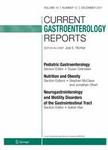版权所有:内蒙古大学图书馆 技术提供:维普资讯• 智图
内蒙古自治区呼和浩特市赛罕区大学西街235号 邮编: 010021

作者机构:Division of Gastroenterology Department of Internal Medicine Michigan Medicine Ann Arbor MI United States Department of Computational Medicine and Bioinformatics University of Michigan 3912 Taubman Center 1500 East Medical Center Drive Ann Arbor 48109 MI United States Michigan Institute for Data Science (MIDAS) University of Michigan Ann Arbor MI United States
出 版 物:《Current Gastroenterology Reports》 (Curr. Gastroenterol. Rep.)
年 卷 期:2024年第26卷第5期
页 面:137-144页
学科分类:1002[医学-临床医学] 100201[医学-内科学(含:心血管病、血液病、呼吸系病、消化系病、内分泌与代谢病、肾病、风湿病、传染病)] 10[医学]
主 题:Artificial intelligence Clinical trials Crohn’s disease Decision support Endoscopic scoring Inflammatory bowel disease Machine learning Prediction models Segmentation Ulcerative colitis
摘 要:Purpose of Review: Artificial intelligence (AI) is quickly demonstrating the ability to address problems and challenges in the care of IBD. This review with commentary will highlight today’s advancements in AI applications for IBD in image analysis, understanding text, and replicating clinical knowledge and experience. Recent Findings: Advancements in machine learning methods, availability of high-performance computing, and increasing digitization of medical data are providing opportunities for AI to assist in IBD care. Multiple groups have demonstrated the ability of AI to replicate expert endoscopic scoring in IBD, with expansion into automated capsule endoscopy, enterography, and histologic interpretations. Further, AI image analysis is being used to develop new endoscopic scoring with more granularity and detail than is possible using conventional methods. Advancements in natural language processing are proving to reduce laborious tasks required in the care of IBD, including documentation, information searches, and chart review. Finally, large language models and chatbots that can understand language and generate human-like replies are beginning to exhibit clinical intelligence that will revolutionize how we deliver IBD care. Summary: Today, AI is being deployed to replicate expert judgement in specific tasks where disagreement, subjectivity, and bias are common. However, the near future will herald contributions of AI doing what we cannot, including new detailed measures of IBD, enhanced analysis of images, and perhaps even fully automating care. As we speculate on future technologic capabilities that may improve how we care for IBD, this review will also consider how we will implement and fairly use AI in practice. © The Author(s), under exclusive licence to Springer Science+Business Media, LLC, part of Springer Nature 2024.